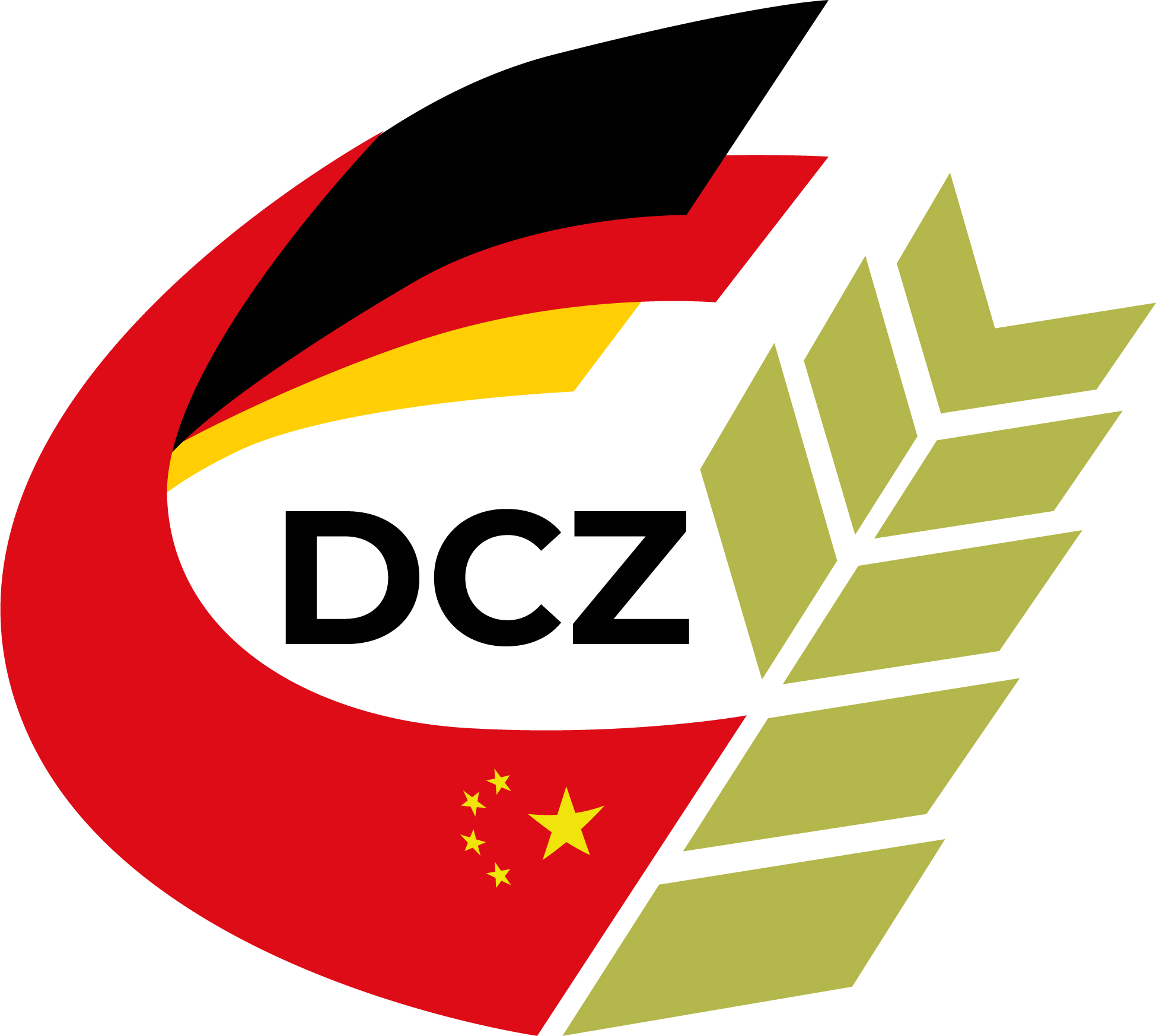Between September 2 and September 6, DCZ in cooperation with the Institute for Environment and Sustainable Development (IESD) of the Chinese Academy of Agricultural Sciences (CAAS) organized a study tour in China for the experts of the DCZ sub-project “German-Chinese cooperation on Agriculture and Climate Change”. The German delegation included lead expert Dr. Rita Merkle, Dr. Gerhard Rappold, Sophia Lüttringhaus, project coordinator Peggy Günther (IAK) and science advisor Dr. Eva Sternfeld (DCZ). On Chinese side lead expert Prof. Li Yu’e (IESD, CAAS), Prof. Dong Hongmin (IESD, CAAS), managing director Tang Zhishao (DCZ, FECC), project officer Yan Yan (DCZ, FECC), Wang Bin (Post-doc at IESD) and Yue Caide (PhD candidate at IESD) participated in the tour.
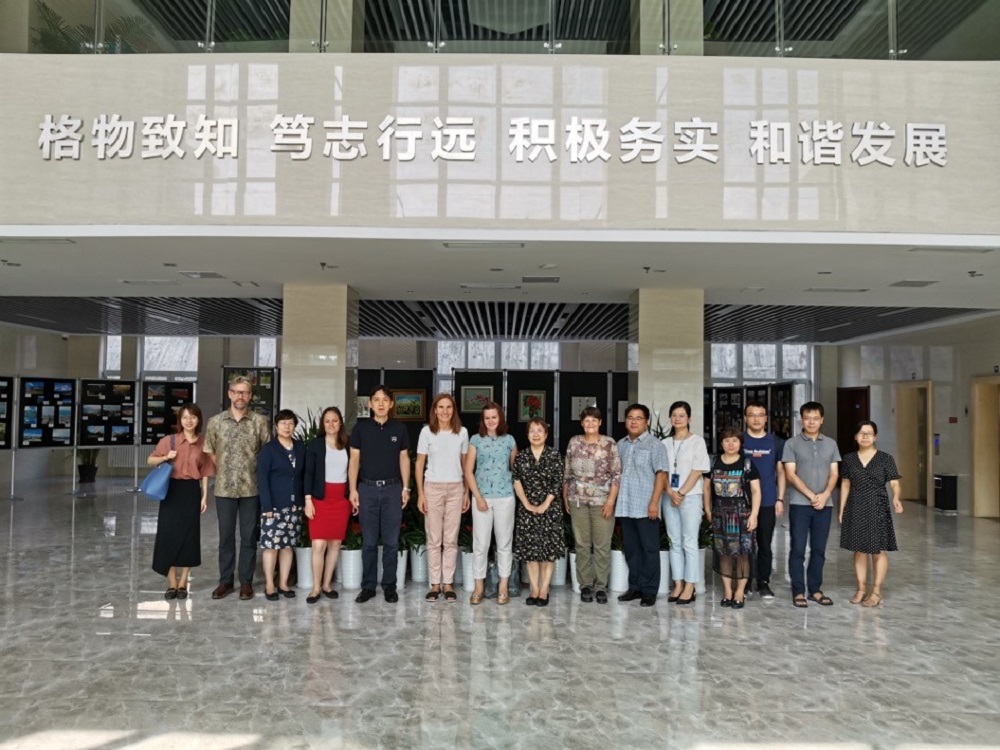
In the morning of September 2, the experts met at the Foreign Economic Cooperation Center (FECC) of MARA in Beijing. Following an introduction to the project and purpose of study tour by Tang Zhishao (DCZ, FECC), Mr. Li Xiang from the Department of Science and Education of the Ministry of Agriculture and Rural Affairs (MARA) gave an overview about the present policies in China regarding climate mitigation and climate change adaption. After his introduction, Xiong Hongli, Li Ping and Qiu Zhijun introduced the work of the National Science and Technology Extension Center (NSTEC) with special regard to dry land farming and pest and disease control.
In the afternoon, the group visited the National Center for Climate Change Strategy and International Cooperation. The Center is attached to the Ministry of Ecology and Environmental Protection and is China’s important agency responsible for international climate policy negotiations. For scientific support the center also works closely with the IESD and other research institutes. Ms. Wang Tian, Ms. Tian Chuan and Ms. Yang Xiu, who frequently attend international negotiations, provided firsthand information on China’s targets and plans related to climate change. In addition, Ms. Wang Tian elaborated on the issue of transparency in the context of greenhouse gas (GHG) inventories.
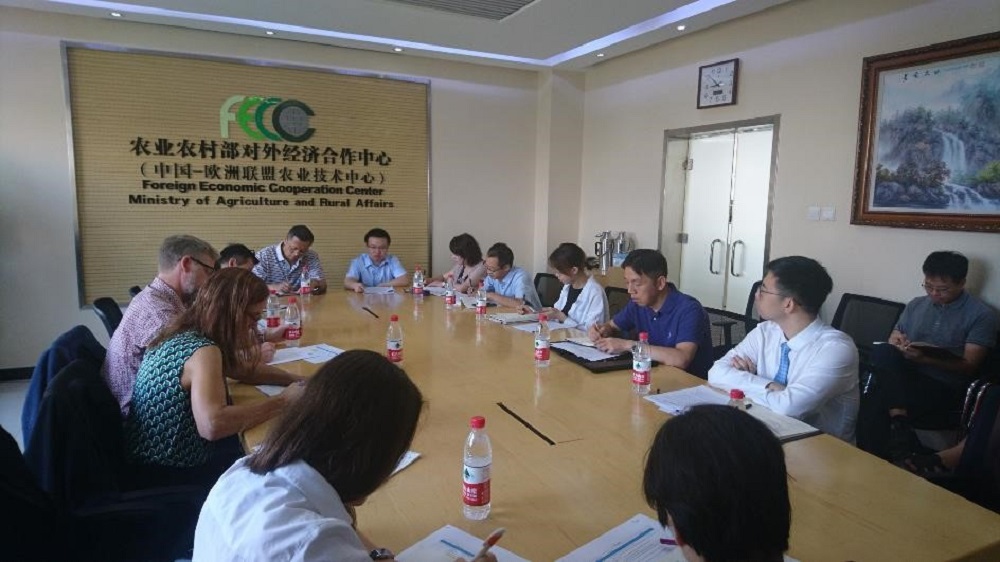
On September 3, the group visited the Institute for Environment and Sustainable Development (IESD) and the Institute of Crop Science of CAAS. At IESD Prof. Li Yu’e provided an overview over climate change and agriculture in China. Following her talk Wei Sha presented her research in collaboration with Prof. Dong Hongmin which concentrates on GHG emission mitigation in livestock production. After the presentations the group had a tour of the IESD laboratories.
In the afternoon of that day the group visited the Institute of Crop Science. Renowned CAAS scientist and breeder Prof. He Zhonghu introduced the CAAS achievements in wheat breeding and showed his laboratories. Prof. Zhang Weijian provided an overview about practices in Climate Smart Agriculture in China. The day was concluded with a dinner reception hosted by Mr. Li Bo, Deputy Director-General for Research and Education at MARA.
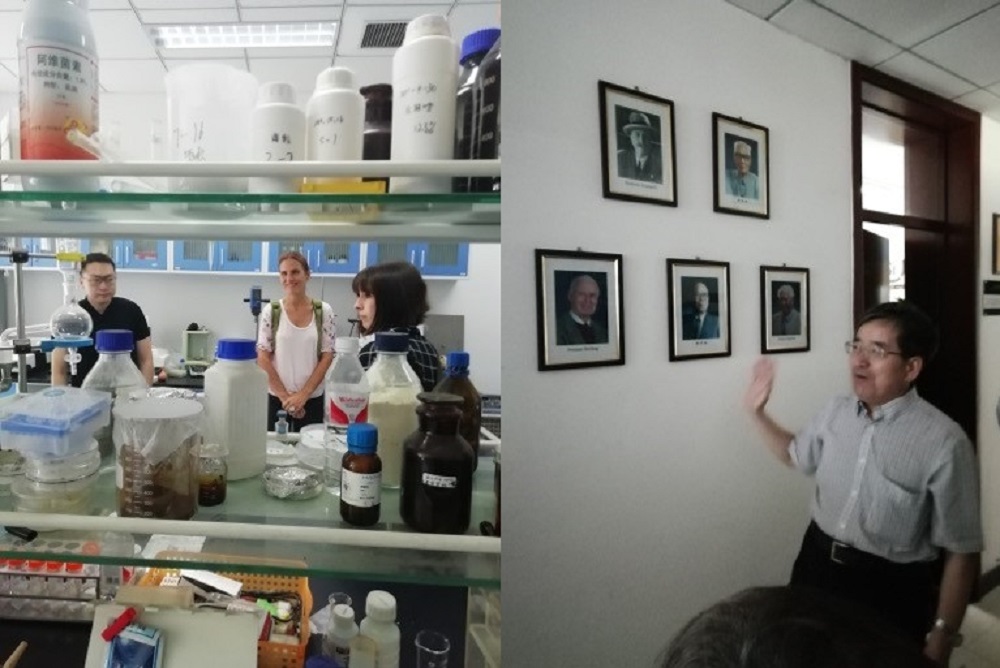
The next day, the group took the train to Jinan, capital of Shandong province. They were received by Qu Zhaolin, director of the Agricultural Environment Protection and Rural Energy Station of the Agricultural Bureau Shandong Province and Dr. Li Yan, deputy director of the Institute of Agricultural Resources and Environment, Shandong Academy of Agricultural Sciences. After a meeting at the Agricultural Bureau of Shandong Province the group travelled to Binzhou city near the Yellow River estuary, where they visited Binzhou Zhongyu Food Cooperation, a large company in China well known for processed wheat products (bread and noodles). CEO Zhang Zhijun demonstrated the company’s efforts for promoting circular economy in agricultural production. This includes using the residues from crop production, the slurry from the company’s pig farms (100,000 pigs annually) and nearby rural households for biogas production. The company also experiments with low fertilizer and zero pesticide input in greenhouses.
In the morning of September 5, the group visited another Biogas project in Wudi county, run by the Huiren Bioenergy Company. This large facility treats residues from crop production including straw as well as slurry from cattle farms and rural households. The slurry collection covers 90,000 households which in exchange are supplied with gas for cooking and heating. For the slurry collection the company is paid by the local administration whereas the private households pay for the gas.
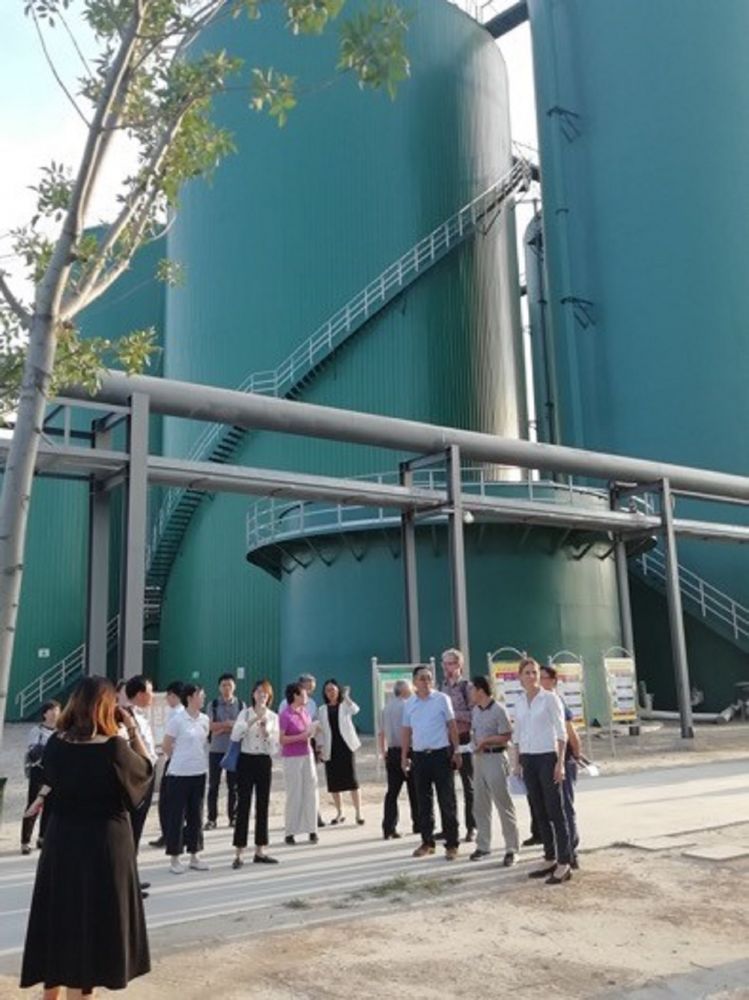
Following this visit the group travelled back to the Shandong Academy of Agricultural Sciences (SAAS) in Jinan. Here they had the opportunity to visit the academy’s experimental fields, including experiments on improved efficiency of maize fertilization and which ultimately reduces GHG emissions.
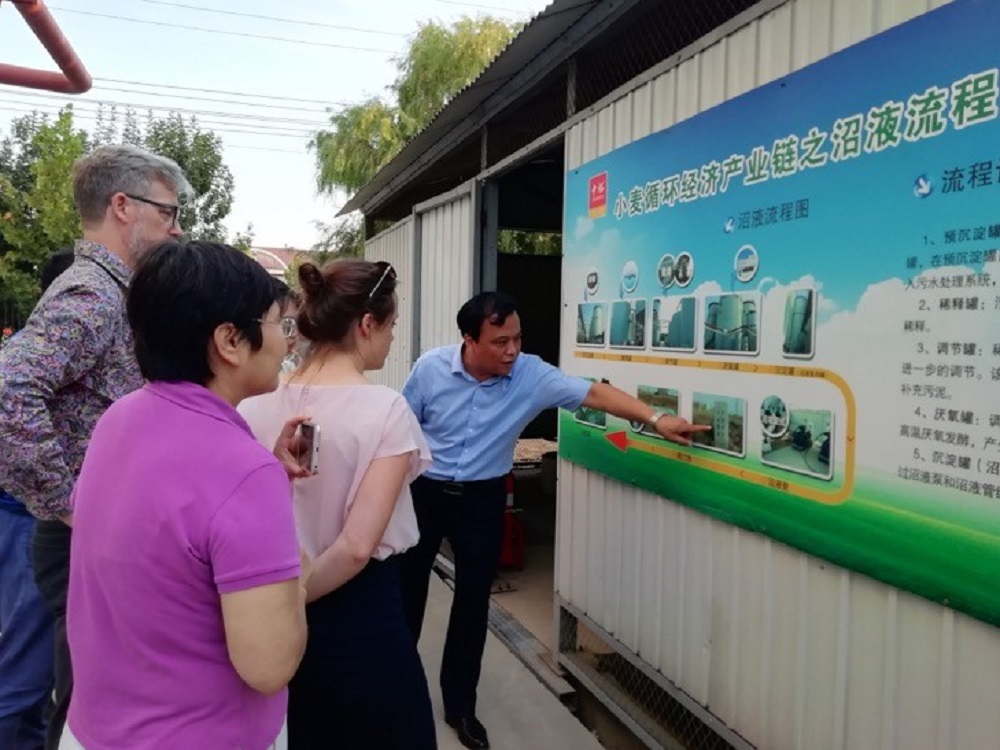
In the morning of September 5, the group visited another Biogas project in Wudi county, run by the Huiren Bioenergy Company. This large facility treats residues from crop production including straw as well as slurry from cattle farms and rural households. The slurry collection covers 90,000 households which in exchange are supplied with gas for cooking and heating. For the slurry collection the company is paid by the local administration whereas the private households pay for the gas.
Following this visit the group travelled back to the Shandong Academy of Agricultural Sciences (SAAS) in Jinan. Here they had the opportunity to visit the academy’s experimental fields, including experiments on improved efficiency of maize fertilization and which ultimately reduces GHG emissions.
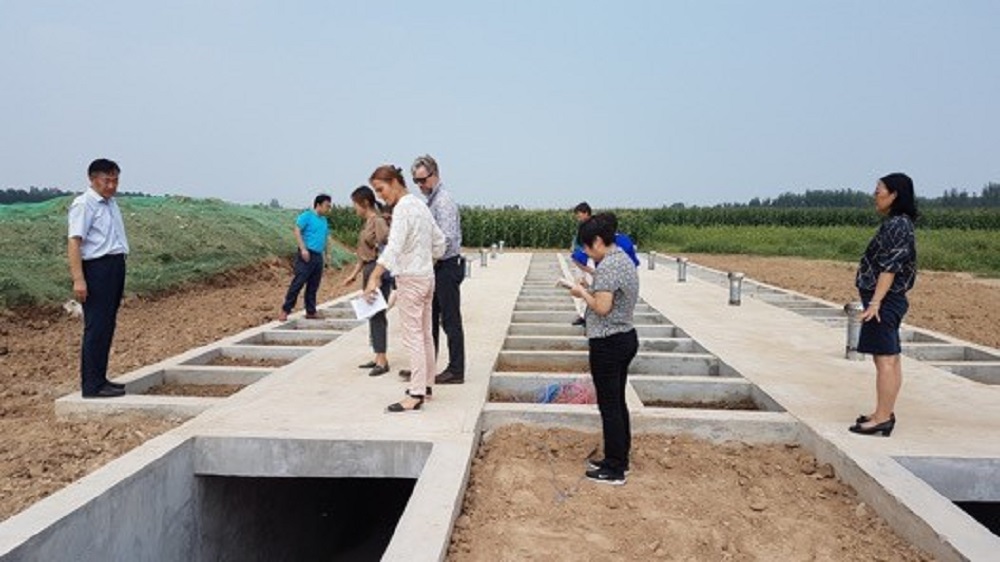
In the afternoon, the delegation travelled to Jimo by train, where the Huasheng Green Agricultural Science and Technology Cooperation demonstrated their achievements in modern greenhouse technology, including the installation of different types of PV panels adjusted to the greenhouse’ production types. Production facilities for mushroom substrate made from rotten wood of apple trees were included.

On the last day of the excursion, the group visited the Qingdao Institute of Bioenergy and Bioprocess Technology of the Chinese Academy of Sciences. The excursion was concluded with a visit of the Tianren Environment Company in Qingdao, a company specialized in energetic use of biomass in the agriculture sector with several realized projects all over China. The group was received by CEO Mr. Cao Man. Ms Wang Qiong introduced the Agricultural Environmental Data Platform developed by the company. The system processes static and dynamic business data from livestock production and calculates the carbon footprint of a facility by processing data on regional manure production, manure management and resource utilization. The excursion was concluded with a debriefing session where further steps within the subproject and beyond were discussed.




